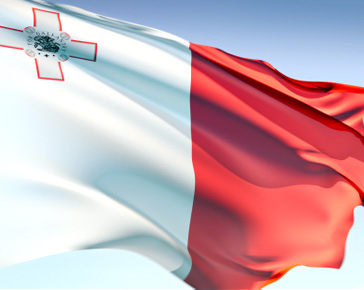Why Malta?
Malta lies at the heart of the Mediterranean, a few hours’ flight from most European cities and from North Africa. The smallest of the European Union’s member states, Malta is emerging as one of the fastest growing financial services centres. The Maltese workforce is well-qualified, flexible and multilingual. The quality of education is high, which leads to high productivity and therefore lower unit costs. The majority of the Maltese population is fluent in Maltese, English and Italian, with the former two being both official languages The Malta University is the oldest in the Commonwealth outside Britain, and enjoys an excellent reputation worldwide. The British governed Malta for over 150 years, and the British touch is still felt in small, charming habits like afternoon tea, driving on the left and bow windows. The locals are friendly, warm, lively and sometimes even noisy. Acting as a bridge country, Malta is fast becoming a regional hub for dynamic financial services, i-gaming and back-office services. An attractive package of incentives, including tax breaks, subsidised factory space, soft loans and rebates on training and employment costs is offered to investors interested in Malta. It has a comprehensive network of double taxation treaties, fiscal advantages in line with EU legislation, a growing professional class of highly trained and qualified individuals, a well-established cadre of professional advisors, and excellent electronic communications and flight connections. Malta has a strong, yet flexible single regulatory body in the Malta Financial Services Authority (MFSA). The MFSA is responsible for all licensed financial services activity on the Islands. The MFSA is structured in line with world best practice. Malta is a leading force in the development of regulatory policy and is fully involved with OECD, the EU and the Commonwealth in policy development. Tax-efficient environment. One of the key advantages of Malta’s tax system is that it is a full imputation system, and has been so since 1948, when income tax legislation was first enacted. Malta is, in fact, the only EU member state with a full imputation system of taxation in force. Businesses set up in Malta benefit from a tax efficient environment – a full imputation system and double taxation treaties with over 40 countries. Tax legislation in Malta offers to investors:
- Low taxation;
- Onshore, EU– status;
- Possibilities for tax planning in order to lower taxes even further (in some cases to 0%);
- Extensive double tax treaty network;
- Exemption from tax on dividends received;
- Exemption from withholding tax on the repatriation of income either of dividends, interest and royalties;
- Access to EU directives.
Malta is a highly developed a financial centre. Financial services and financial intermediation and related sectors currently account for 12 per cent of GPD; a figure set to double in the next decade. It offers excellent possibilities for low-cost financing of investment transactions and international activities. All domestic and foreign transactions are handled quickly and reliably by Maltese and foreign banks with the latest technology. Contact us to initiate the incorporation of a Maltese registered company and start reaping the full benefits of an onshore, low-tax, EU jurisdiction.

